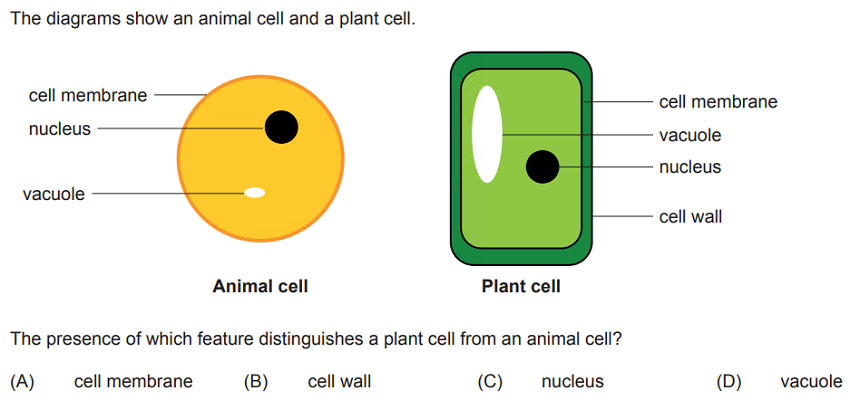How ICAS tests and strengthens curriculum-based skills

Every fundamental skill and area of knowledge included in a curriculum should help to prepare children for the adult world, and the difficult job of getting those abstract concepts into their heads is down to you, the teacher.
Thankfully, ICAS can help. Its peer-reviewed questions are based on common skills outlined in various curriculums, including those of Australia, New Zealand and Singapore, which not only test students on the targeted skills, but also strengthen them through the very act of testing.1
How are ICAS questions related to the curriculum?
While there isn’t specific mapping from a question to a curriculum’s content code or learning outcome, our test creators take the most common skills from various curriculums and then write questions for them. For example, the AC9S8U01 curriculum code in Year 8 Science for Australia requires that students learn to “recognise cells as the basic units of living things, compare plant and animal cells, and describe the functions of specialised cell structures and organelles.” In New Zealand’s curriculum, this is roughly related to the “describe the organisation of life at the cellular level” objective. Taking these and other related learning outcomes into consideration, our test creators added two objectives to the Year 8 ICAS Science framework – “identify different parts of the cell” and “classify living and non-living things based on structure and form” – which loosely reflect the learning outcomes in both Australia’s and New Zealand’s curriculums, as well as the curriculums of other countries where ICAS is sat. You can see the ICAS question that this broadly covers below.

This rigorous approach to building our assessment frameworks for ICAS ensures that your students are being tested on skills that they actually need to learn, while helping to reinforce them as they work through the test itself. It’s also the reason why ICAS results can help you to build a broader picture of each student’s learning, which when used with feedback from other assessments, allows you to pinpoint their strengths and weaknesses and discover what changes you may need to make in the classroom. But to be extra clear, that additional assessment data gathered throughout the year is necessary to build an accurate picture of your students, which can’t be done through ICAS alone. Any teacher who has looked over an ICAS exam paper should recognise the challenging nature of the test. It’s designed that way. We want to stretch your students’ abilities with novel contexts and question types, testing skills that are beyond their typical scope towards the end of the exam, and written using real-world examples that they find engaging and fun to answer. As a low-stakes assessment, there are no consequences for students who don’t perform well. And for those that do, they might even find their life’s calling.
So, for every ICAS question, you won’t be able to directly map the tested skills to curriculum competencies, but because we build our assessment frameworks using the various curriculums as a guide, finding common skills that students need to learn throughout Oceania and beyond, they can certainly be broadly mapped. An ICAS question may test several competencies from the curriculums, some aligned with the student’s year level, and some beyond, with the goal of stretching their abilities and testing their higher-order thinking skills. And because we take the time to regularly update our assessment frameworks and carefully ensure that every key competency is considered, you can be sure that the tested skills are based on the most recent curriculums.
Kerry is an assessment expert with extensive experience managing assessment development projects both in Australia and internationally. She comes from a teaching background spanning some 20 years. Kerry and her team of curriculum experts are motivated by a desire to create assessments that are engaging, challenging and enlightening for students and which provide teachers and school leaders with the data they need to meet the individual learning needs of every student.
This article was also developed with the help of Rob Marchant, Content Marketing Manager for Janison Assessments.
References
- Andrew C. Butler & Henry L. Roedinger III, 2007, Testing improves long-term retention in a simulated classroom, European Journal of Cognitive Psychology
Tag:curriculum, ICAS




